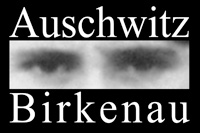




Political prisoners
In 1933, the Reich President issued the Decree “for the Protection of People and State”, which “temporarily” suspended civil rights guaranteed by the 1919 Weimar Republic Constitution. On the basis of the Decree, the police took the decision to imprison people accused of “political” offenses in a concentration camp without trial or any oversight by the state judicial apparatus. “Political” offenses were understood in the broad sense as activity hostile to the Nazi regime.
At the moment when Auschwitz was created, the majority of Poles, and later some inmates of other ethnicity, including Jews, were marked with a red triangle and numbered among this category of prisoners. Aside from those accused of participating in the resistance movement and belonging to forbidden organizations, the red triangle was also placed on people accused of such offenses as breaking curfew, arguing with German bosses, singing patriotic songs, expressing doubts about the ultimate German victory or illicit contact with German girls. Another charge that frequently landed Poles in concentration camps was “being an intellectual.” No concrete charges were ever formulated against many others, such as hostages or persons detained during street roundups or the pacification of villages. In August 1944, political prisoners, of whom 65 percent were Jews, constituted 95 percent of the total camp population.
